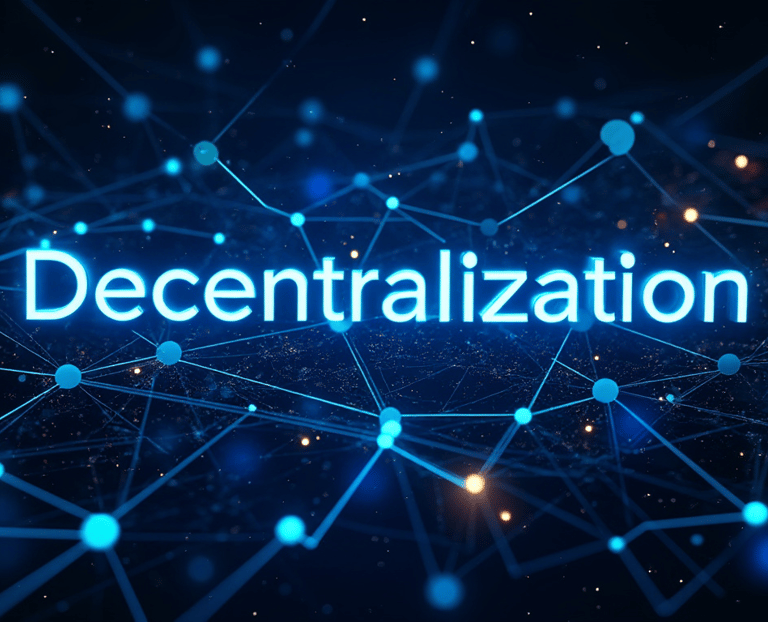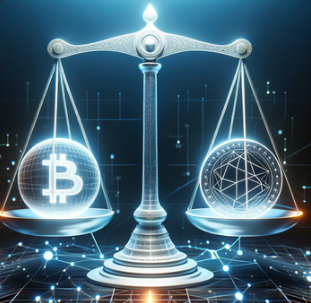Decentralization
The foundation of the modern digital revolution
godidgo.com
10/26/20245 min read


Decentralization is a concept that has gained considerable traction in recent years, especially with the rise of blockchain technology and cryptocurrencies. Rooted in the idea of distributing power and decision-making across a network rather than centralizing it within a single entity, decentralization aims to promote transparency, security, and autonomy in various systems. This article explores the principles, benefits, and challenges of decentralization, along with its impact on different sectors and its role in shaping the future of technology and society.
What is Decentralization?
Decentralization is the process of distributing control, authority, and data across a network rather than consolidating it within a single governing entity. In a decentralized system, decisions are made collaboratively or autonomously by network participants rather than through a central authority. This principle has wide-ranging applications, from financial and governance systems to the internet itself.
Blockchain technology, a notable example of decentralization, allows digital transactions to be recorded on a distributed ledger maintained by a network of computers (or nodes) instead of a centralized server. Similarly, decentralized finance (DeFi) and decentralized autonomous organizations (DAOs) are applications that leverage blockchain to create systems without a central authority, driven solely by the community.
Key Principles of Decentralization
Decentralization relies on a few core principles that distinguish it from traditional, centralized models:
Distribution of Authority: In a decentralized model, control is shared across multiple nodes or participants, reducing the risk of corruption or mismanagement by a central authority
Transparency: Decentralized systems promote openness by allowing network participants to access and verify data in real-time. This feature fosters trust among users and reduces the likelihood of fraud
Security through consensus: Many decentralized systems, particularly those based on blockchain, rely on consensus mechanisms like Proof of Work (PoW) or Proof of Stake (PoS) to validate transactions. These mechanisms provide security and accuracy without the need for intermediaries
Resilience: Decentralized networks are generally more resilient to failure, as there is no single point of weakness that could bring down the entire system. This makes them ideal for applications requiring high uptime and reliability.
Benefits of Decentralization
The decentralized model offers several advantages over traditional centralized systems, particularly in terms of security, user empowerment, and system efficiency:
Enhanced Security: In a decentralized system, data is distributed across multiple nodes. This distribution makes it difficult for malicious actors to compromise the entire network, as they would need to gain control over a majority of nodes to manipulate the data.
Increased User Control: Decentralization empowers users by granting them more control over their data and transactions. For instance, in decentralized finance (DeFi), individuals can manage their assets without relying on traditional financial institutions, which might impose fees, delays, or restrictions.
Greater Transparency: By design, decentralized networks allow participants to verify transactions or actions taken within the system. This transparency helps to build trust, especially in sectors like finance, supply chain, and voting systems, where verifying the authenticity of information is crucial.
Reduced Intermediary Costs: Decentralization reduces the need for intermediaries, which often charge fees for their services. Peer-to-peer (P2P) systems enabled by decentralization allow users to transact directly, reducing costs and increasing efficiency.
Censorship Resistance: Decentralized platforms are less susceptible to censorship or control by single entities. This aspect makes decentralization particularly attractive for individuals in regions with restricted access to information or for users seeking greater freedom in managing their assets.
Applications of Decentralization
Decentralization is transforming several industries by providing alternative models that challenge traditional frameworks. Some notable applications include:
Cryptocurrencies and DeFi: Bitcoin and Ethereum are two of the earliest and most prominent examples of decentralized systems, enabling peer-to-peer financial transactions without the need for a bank. DeFi expands on this by offering decentralized borrowing, lending, and trading platforms that operate without intermediaries
Decentralized Autonomous Organizations (DAOs): DAOs are organizations governed by code rather than a central leadership. Decisions are made collectively by token holders, who vote on proposals and changes to the organization’s operation. This model enables more democratic governance and reduces the risk of centralized corruption
Supply chain management: Decentralized ledgers allow real-time tracking of goods and materials across the supply chain. Blockchain-based systems, for example, enhance transparency and traceability, helping to verify the authenticity and provenance of products
Healthcare: Decentralized health records can improve patient privacy and interoperability between healthcare providers. Patients can maintain control over their data while enabling healthcare providers to access necessary information securely and efficiently
Data Storage and Sharing: Decentralized data storage solutions, like the InterPlanetary File System (IPFS), enable data to be distributed across multiple nodes rather than stored on a single server. This not only increases security and reliability but also reduces dependency on central cloud providers.
Challenges of Decentralization
While decentralization offers numerous benefits, it also presents several challenges:
Scalability Issues: Decentralized networks, particularly blockchains, face limitations in processing large volumes of transactions quickly. Solutions like Layer 2 protocols and sharding are being developed to address these scalability challenges
Regulatory Uncertainty: Many governments are still adapting to decentralized models, and regulatory clarity is often lacking. Uncertainty around taxation, compliance, and security standards can create obstacles for decentralized platforms, especially in highly regulated industries like finance
Energy Consumption: Consensus mechanisms, especially Proof of Work, require substantial computational power, leading to high energy consumption. This has raised concerns about the environmental impact of blockchain networks like Bitcoin. Alternatives, such as Proof of Stake, offer more energy-efficient solutions but are still under development and adoption
User Education: Decentralized systems require a certain level of understanding to use effectively. Without central support, users may find it challenging to navigate these systems, increasing the need for user education and support tools
Security Risks: While decentralization can increase security, it is not immune to attacks. For example, decentralized finance platforms have been targets for hacking due to vulnerabilities in smart contracts. Ensuring the robustness of decentralized systems requires rigorous testing and security audits.
The future of decentralization
Decentralization is likely to play an increasingly influential role in the evolution of digital infrastructure. As technology advances, we may see more hybrid models that combine the benefits of both centralized and decentralized systems. For instance, traditional institutions, including banks and corporations, are exploring decentralized elements to improve efficiency, transparency, and security.
Additionally, the rise of Web3—a vision of the internet that is decentralized, open, and controlled by its users—signals a paradigm shift in how data, assets, and identities are managed online. With Web3, individuals will have more control over their digital presence, and decentralized applications (dApps) will offer alternatives to conventional services.
Conclusion
Decentralization represents a significant shift in how power and authority are distributed across systems. By reducing reliance on centralized entities, decentralized systems offer greater transparency, security, and user autonomy. Although challenges exist, ongoing technological advancements are likely to overcome these obstacles, paving the way for a more decentralized and democratic digital future. From cryptocurrencies and DAOs to supply chain and data storage, the applications of decentralization are vast and hold the potential to reshape numerous industries. As adoption grows, decentralization may become a foundational principle for the internet, finance, governance, and beyond, empowering individuals and fostering a more open, inclusive global society.content

Get in touch
Feel free to contact us to inquire about any of the Web2/DNS and Web3/Onchain domains showcased on our platform. We are open to receiving proposals and evaluating direct purchase offers for all the digital assets featured.
Our team is also available to explore tailored agreements and negotiated sales, ensuring a smooth and efficient acquisition process that aligns with your specific needs.
Connect with us to amplify your identity across both the Web2/DNS & Web3/Onchain landscape. Together, let's redefine the future of digital identities and brands.
Contact us now to elevate your DIDs & Brands to new heights, because in the world of Go DID Go! your Digital Identity is not just owned; it's celebrated!
Contact Us
info@godidgo.com




